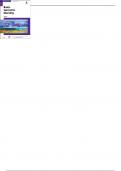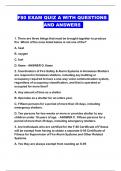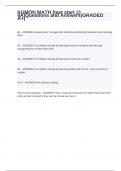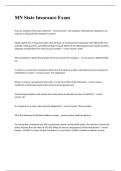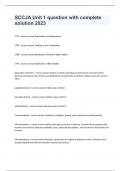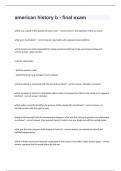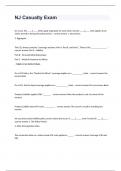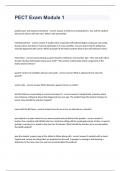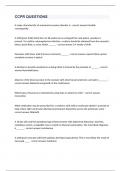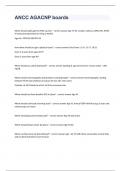Exam (elaborations)
Basic Geriatric Nursing 6th Edition BY Patricia A - Test Bank
- Course
- Institution
Chapter 01: Trends and Issues Test Bank MULTIPLE CHOICE 1. What fact explains the shift of health care focus toward the older adult in the late 1960s? a. Disability was viewed as unavoidable. b. Complications from disease increased mortality. c. Older adults’ needs are similar to th...
[Show more]
